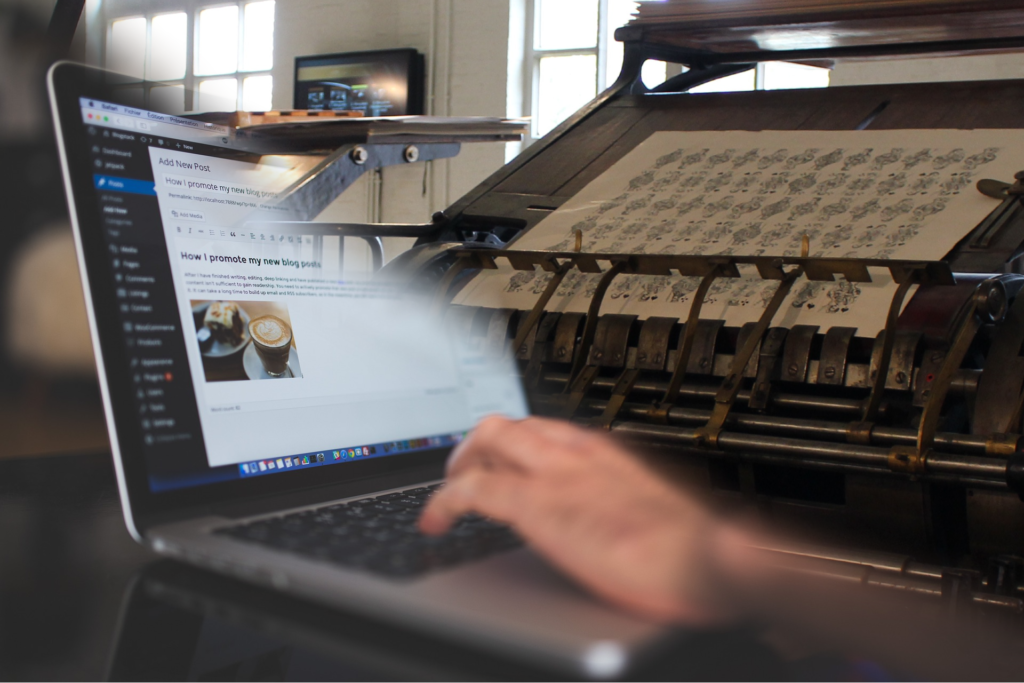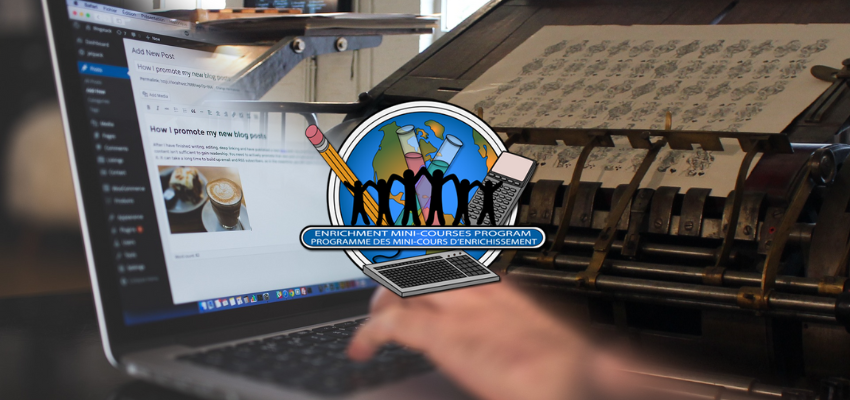In this post you will see a preamble for the 2023 Enriched Mini-Courses Program (EMCP). It is something I had designed for the orientation day on April 30, 2023. I felt that it was important to create a road map for students and their parents with learning outcomes and to place the blogging session within the context of the Book Arts Lab where the majority of the program was taking place.
From printing press to digital printing
When the printing press was created in the fifteenth century, rulers and authoritarians didn’t realize the “grave menace” that was knocking at their door. By the time they realized the power the printing press had on disrupting the status quo it was too late. They attempted to censor, license, and monopolize the new technology, enforcing severe penalties on those that would use the technology to challenge their authoritarian rule. Consider the following passage from a forward by Wilfrid Eggleston in Wilfrid Kesterton‘s 1967 book titled A history of journalism in Canada.

The future of printing
Fast-forward about 500 years and we are now facing a similar situation. If the printing press broke down barriers to literacy and dissemination of information, the internet (specifically Web 2.0) can surely be seen as blowing the doors off literacy and dissemination of information.
But is that a good thing?
Of course, literacy and dissemination of information is a good thing. However, with the explosion of information we find ourselves in now, we need to have the skills to filter out the noise and clutter of information around us. While having access to infinite information at our fingertips can be empowering, we are also seeing a new normal unfold before us, the spread of misinformation and pseudoscience have become increasingly damaging over the past several years.
But why blogging?
Blogging is extremely important to me. Not because anyone reads my content (I don’t actually think anyone does) but because of the metacognitive skills that go into writing a blog post. The YouTube video below shows an interview with Seth Godin (one of my favourite authors and speakers) and Tom Peters.
This short video sums up what I love about blogging.
This EMCP session attempts to take students out of the Book Arts Lab where they will have learned about traditional printing models into the more accessible world of digital publishing. Students will have the opportunity to compare and contrast these two printing methods using the blogging platform WordPress. Not only that, but this session will attempt to empower students with a set of skills aimed at making them more information conscious in our new digital reality.

Session Learning Outcomes
Learning Outcomes
Information Landscape
- Participants will understand the complex nature of information in an online environment.
- Participants will understand the concepts of currency, reliability, authority and purpose some of the foundational components of evaluating information (the C.R.A.P. Test).
Digital Printing (Blogging)
- Participants will create a blog post using WordPress. 42% of the web is built on WordPress. More bloggers, small businesses, and Fortune 500 companies use WordPress than all other options combined.
- Participants will learn to use royalty free images from sources such as Pixabay or Unsplash.
- Participants will engage in conversations through the use of comments on other student’s blogs.
For learning outcomes related to the information landscape, I recently published a series of posts outlining the Everyday Life Information Seeking Series that I modified for the EMCP session.

